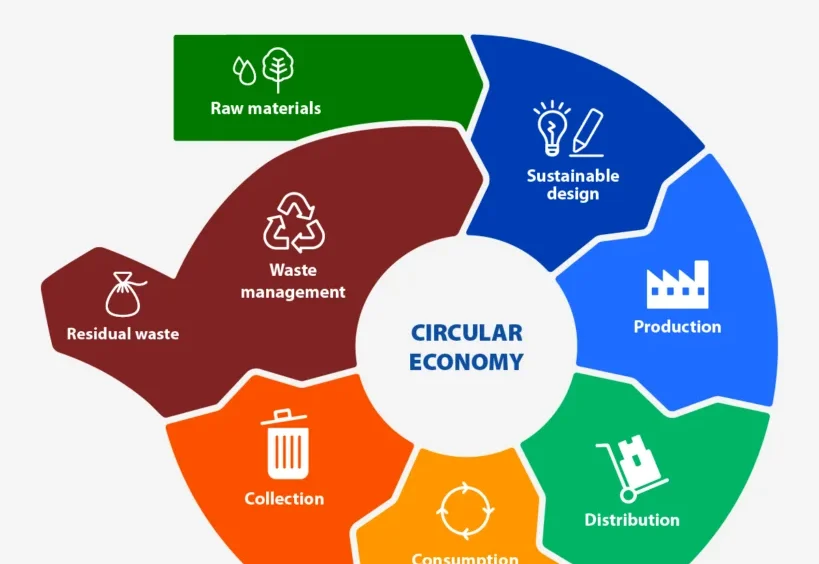How Information Management Enhances Green Service Solutions

Information management involves the systematic collection, storage, organisation, and dissemination of information throughout an organisation and can play a key role in advancing sustainability initiatives
Byline: Praveen Joseph, Assistant Vice President, Crown Worldwide Group
India generates around 12 million tonne of waste paper annually, with the corporate sector responsible for nearly half of this figure. With the country’s low recycling rate of 27 per cent, the need to reduce paper consumption is crucial, especially as the environmental consequences- such as landfill overflow, deforestation, and pollution- become more severe. One strategic approach to addressing these challenges is through effective information management, which minimizes reliance on paper and supports the development of green service solutions.
Information management involves the systematic collection, storage, organization, and dissemination of information throughout an organization. It covers the entire lifecycle of information- from acquisition and custodianship to distribution and eventual disposal. Properly implemented, information management improves workflow efficiency, eliminates redundancy, and ensures that accurate information is always accessible. In times of crisis, such as during the pandemic, information management has proven essential for maintaining transparency and enabling smooth operations across organizations. Beyond operational gains, information management can play a key role in advancing sustainability initiatives.
How Can Information Management Enhance Green Service Solutions-
Optimizing Resource Utilization-Information management systems enable organizations to accurately track and forecast their resource needs, preventing overproduction and reducing waste. In the corporate sector, predictive data models can assist in aligning resource allocation with real-time demand, minimizing excess stockpiling and unnecessary expenses. For example, effective IM can help organizations manage office supplies, IT resources, and documentation needs, leading to significant reductions in waste and more efficient use of resources. By optimizing resource utilization, companies can not only minimize their environmental impact but also achieve cost savings that contribute to overall business sustainability.
Enabling A Circular Economy
The circular economy model is becoming increasingly relevant for corporations seeking sustainable practices. Information management plays a pivotal role in this transition by tracking products and materials throughout their lifecycle. By maintaining comprehensive digital records of assets, organizations can ensure that items are refurbished, reused, or recycled, rather than discarded. This shift promotes responsible resource use and helps mitigate waste, aligning with corporate sustainability goals.
Supporting Compliance And Reporting
Information management systems simplify the process of tracking and reporting key environmental metrics such as carbon emissions, water usage, and energy consumption. Automated data collection enables organizations to comply with environmental regulations and industry standards while demonstrating their commitment to sustainability. Streamlining reporting processes not only reduces the administrative burden but also enhances a corporation’s reputation as a responsible entity committed to environmental stewardship.
A Powerful Tool For Innovation
Information management enables companies to analyze large datasets, which can be utilized to identify new opportunities for sustainability initiatives. By leveraging technologies such as machine learning and artificial intelligence, organizations can derive insights that lead to the development of innovative green solutions. Whether improving operational efficiency or designing sustainable products, effective IM can be a powerful catalyst for corporate innovation.
Improve Sustainability In Logistics-
Logistics is a crucial area where effective information management can enhance sustainability. Corporations often deal with numerous documents, including invoices, shipping permits, and contracts. By digitizing these processes, organizations can reduce the need for physical paperwork and improve visibility into every stage of the supply chain. Analyzing historical data helps optimize logistics operations, further reducing waste and emissions associated with traditional paper-based methods.
Reducing the Environmental Impact of Document Handling
The use of digital signatures offers a sustainable alternative to traditional document approval processes. Instead of transporting physical documents for signatures, which consumes resources and generates emissions, digital signatures allow documents to be signed and stored electronically. This not only reduces transportation needs but also enhances document security and accessibility, ultimately minimizing the organization’s carbon footprint.
Conclusion
Information management presents a range of opportunities for enhancing green service solutions in the corporate sector while reducing environmental impact. By minimizing reliance on physical resources, streamlining processes, and leveraging digital tools, companies can improve operational efficiency and contribute to more sustainable business practices. In an era where sustainability is increasingly a business imperative, the role of information management is central to achieving both environmental and organizational goals.





































































































































































































































































































































































































































































































































































































































































































































































































































































































































































































































































































































































































